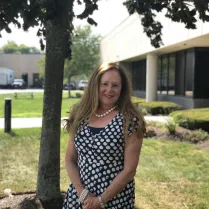Three Steps to Reduce Digital Depression in Teens
Author

Barbara J. Green, PhD, Youth Health Connection Medical Director
Digital depression is real. A recent study from the University of Pennsylvania made headlines because it found that Facebook, Snapchat, and Instagram may have a negative impact on the well-being of users of all ages. But this trend is especially alarming for parents of young adults and teens.
As part of Youth Health Connection’s 25th anniversary, we invited Nassir Ghaemi, MD, professor of Psychiatry at Tufts University, to speak about his research on the impact of social media on depression, anxiety, and suicidality in teens and young adults. It’s a subject we know is on the minds of parents, teachers, and all who work with teens.
Dr. Ghaemi's findings show that 20 percent of teens and young adults report notable depression symptoms when using social media. It is a very real health risk for teens; Dr. Ghaemi says that the rate of suicide has doubled in teenage girls in the last five years, which he attributes (at least in part) to the increase in social media use.
Here are three recommendations from Dr. Ghaemi on boundaries parents should set for teens:
Limit social media use to no more than 2 hours per day. It may feel impossible for your teen to cut back, but it’s worth it. Dr. Ghaemi’s research found that reducing the amount of time spent on social media by half, college-aged young adults with depression saw a 40 percent improvement in their depression—which is roughly equivalent to the reduction from antidepressant medication.
Don’t let teens sleep with their phones. Keeping phones out of the bedroom is a great first step to cutting back on social media use—and hopefully increasing how much sleep your teen gets.
Limit the social media platforms your teen uses. Dr. Ghaemi reports that Snapchat and Instagram are most associated with anxiety in teens. Consider encouraging your child to cut back on these apps—or delete them altogether.
Dr. Ghaemi had many wonderful insights in his talk. I encourage parents, teachers, or anyone who has a young adult in his or her life to watch and share the video below.
Author

Barbara J. Green, PhD, Youth Health Connection Medical Director






